
Value Added Tax in UAE (VAT)
Value Added Tax (VAT) in the UAE is a 5% consumption tax applied to most goods and services to boost national revenue. Businesses must register for VAT, file returns, and comply with regulations to avoid penalties.
Table of Contents
Related Articles


Sugar Tax Reform Will Crush Small UAE Drink Brands

The Impact of CARF on UAE Crypto Traders | Ready to Report FTA

Let's Talk
Sign Up For Free Consultation
Value Added Tax in UAE
Value Added Tax (VAT) is a cornerstone of the UAE’s strategy to build a sustainable and diversified economy. Introduced on January 1, 2018, VAT reflects the UAE government’s commitment to reducing its reliance on oil revenues, which historically dominated the country’s fiscal structure. As a consumption tax, VAT is applied incrementally through the supply chain, with the final burden falling on end consumers. The universal VAT rate of 5% on taxable supplies and taxable goods and services ensures transparency and consistency, aligning the United Arab Emirates with international tax standards.
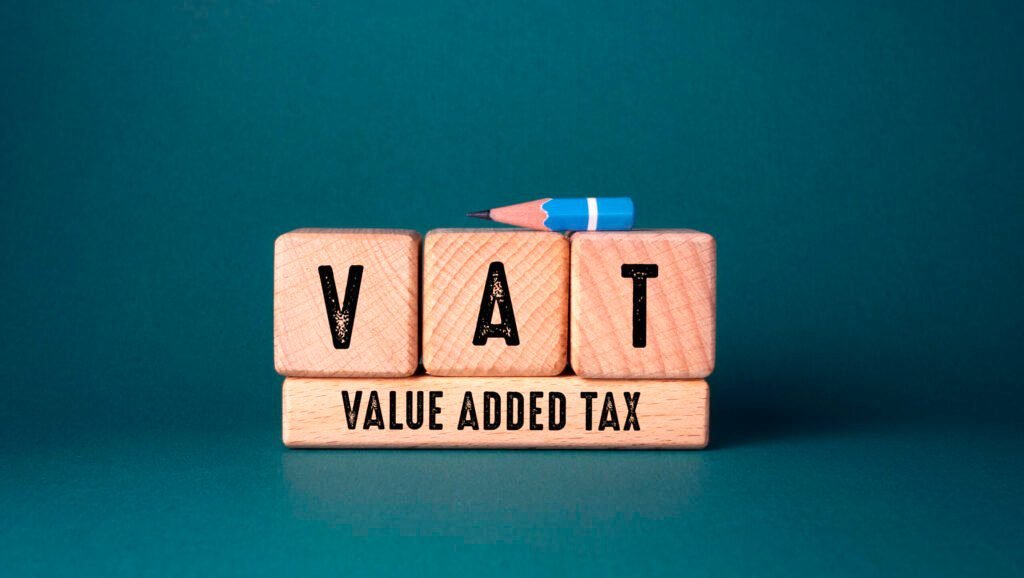
The introduction of VAT has had significant implications for businesses across various sectors. It requires companies to maintain accurate financial records, issue VAT tax invoices, and file VAT returns within prescribed timelines. Businesses must also register for VAT and ensure that their tax registration is accurate and up to date with the Federal Tax Authority. For small and medium enterprises (SMEs), this shift underscores the need for efficient tax management to avoid compliance challenges and penalties. Additionally, businesses need to adapt their operational frameworks to ensure proper accounting for input tax and output tax, in line with legal requirements.
Some goods and services may be exempt from VAT, while others will require businesses to comply with VAT registration requirements. Registering VAT is essential for businesses making taxable supplies in the UAE, and those failing to comply may face penalties. Ensuring accurate tax return filings and understanding tax periods is vital for businesses to manage their VAT in UAE obligations effectively.
Professional support from experts like Tulpar Global Taxation helps ease the complexities of VAT compliance. From assisting businesses to register for VAT, managing VAT refunds, to guiding companies through VAT audits, our tailored solutions ensure compliance while minimizing risks. We help businesses maximize input tax recovery, streamline tax periods, and optimize cash flow, fostering operational efficiency and long-term financial stability. Whether you’re VAT return filing in Dubai or managing corporate tax obligations, Tulpar’s expert support ensures your business is aligned with UAE VAT laws, avoiding costly errors and penalties.
Understanding VAT Basics
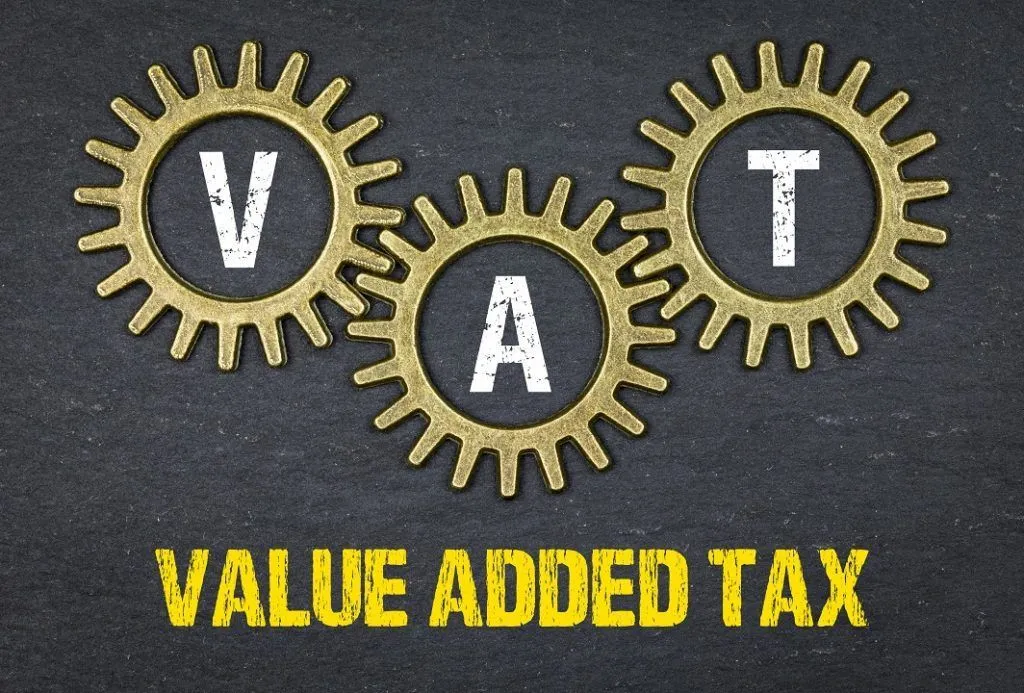
Value Added Tax (VAT) is a tax levied on the value added to goods and services at each stage of production or distribution. It is paid by consumers but collected by businesses on behalf of the government. The key principle of VAT is that businesses charge VAT on their sales (output tax) and can reclaim VAT paid on their purchases. This ensures that tax is only paid on the value added at each stage, rather than on the entire cost of the product or service.
The VAT system is designed to be transparent, with businesses acting as intermediaries to collect and remit the tax to the government. The tax rate can vary depending on the country or region, and certain goods and services tax rates may be reduced or exempted. For example, basic necessities, healthcare, and education are often exempt from VAT to avoid burdening consumers. Understanding VAT basics is essential for businesses to comply with tax regulations, manage cash flow, and avoid penalties. Proper VAT management helps ensure that businesses operate efficiently while remaining compliant with local tax laws.
What is VAT and Why is It Important?
Value-Added Tax (VAT) is a consumption-based indirect tax that applies to most goods and services in the UAE. This tax is collected incrementally at every stage of the supply chain, from production to the final sale, with the final consumer bearing the cost. Businesses act as intermediaries, collecting and remitting the tax to the UAE Federal Tax Authority (FTA) on behalf of the government. The VAT rule came into effect on January 1, 2018, marking a significant shift in the UAE’s economic strategy. Traditionally reliant on oil revenues, the UAE needed a diversified income source to sustain public services like healthcare, infrastructure, and education. VAT provides a steady revenue stream, ensuring the country’s long-term economic stability and growth. The rate of 5% applies across most taxable goods and services, creating a fair and transparent system that spreads the tax burden across multiple points in the supply chain.
Value-Added Tax (VAT) is a consumption-based indirect tax that applies to most goods and services in the UAE. This tax is collected incrementally at every stage of the supply chain, from production to the final sale, with the final consumer bearing the cost. Businesses act as intermediaries, collecting and remitting the tax to the UAE Federal Tax Authority (FTA) on behalf of the government. The VAT rule came into effect on January 1, 2018, marking a significant shift in the UAE’s economic strategy. Traditionally reliant on oil revenues, the UAE needed a diversified income source to sustain public services like healthcare, infrastructure, and education. VAT provides a steady revenue stream, ensuring the country’s long-term economic stability and growth. The rate of 5% applies across most taxable goods and services, creating a fair and transparent system that spreads the tax burden across multiple points in the supply chain.
For businesses, it is essential to understand the mandatory registration threshold and voluntary registration threshold. A business must register for VAT if its taxable supplies exceed the mandatory registration threshold. However, businesses that do not exceed the threshold can still choose voluntary registration for VAT, allowing them to claim back VAT paid on their expenses through tax credits. VAT also plays a critical role in tax evasion prevention. By requiring businesses to report input tax paid and charge VAT at each stage of the supply chain, the UAE ensures that the tax is properly accounted for. Companies must maintain accurate tax return filing and obtain a tax registration number from the FTA to remain compliant.
For businesses operating in the UAE, VAT in the UAE is crucial for compliance and operational efficiency. It affects pricing strategies, financial planning, and even the perception of professionalism in the market. Whether dealing with tax credits or ensuring compliance with federal law, businesses in the UAE must navigate VAT regulations carefully to avoid penalties.
Key Features of VAT in the UAE
VAT in UAE operates under specific regulations that define taxable goods, rates, and exemptions:
- Standard Rate: A 5% VAT applies to most goods and services.
- Zero-rated Supplies: Certain categories, such as exports, international transport, healthcare, and education services, are taxed at 0%.
- Exemptions: Financial services, residential properties, bare land, and local passenger transport are VAT-exempt.
These rules ensure that essential sectors remain affordable for consumers while providing the government with revenue from luxury or non-essential goods and services. This balanced approach also encourages foreign investment and economic stability.
Threshold for VAT Registration
To ensure fair application, the UAE has set thresholds for VAT registration:
- Mandatory Registration: Businesses with an annual taxable turnover exceeding AED 375,000 must register for VAT.
- Voluntary Registration: Businesses earning between AED 187,500 and AED 375,000 can opt for voluntary registration.
Voluntary registration offers smaller businesses the opportunity to benefit from VAT mechanisms like claiming input tax credits. This encourages SMEs to formalize their operations, contributing to the broader economy. Tulpar Global Taxation supports businesses in understanding these thresholds, preparing documentation, and completing the registration process efficiently.
Steps for VAlue added tax Registration
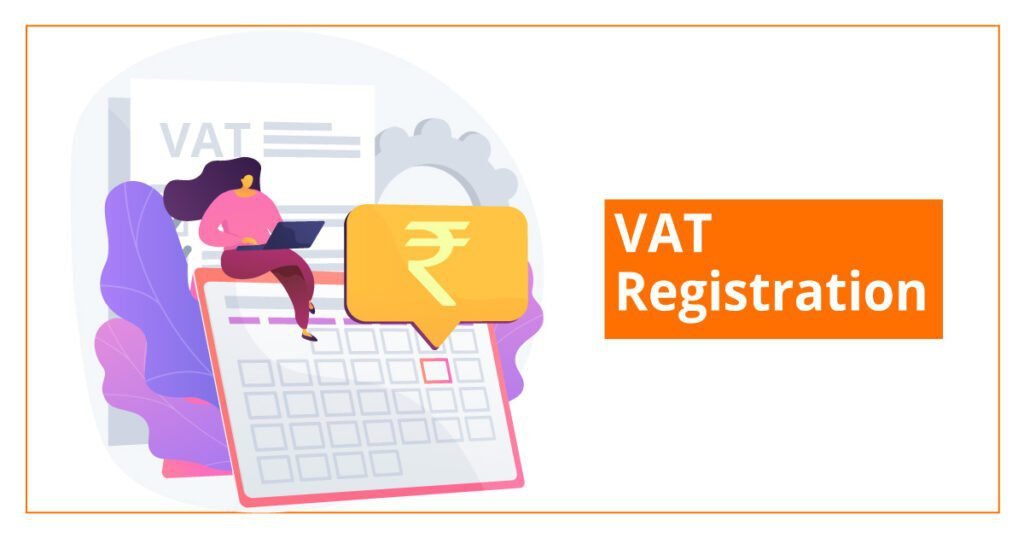
- Determine VAT Eligibility:
Before registering for VAT, businesses must determine if they meet the criteria for registering VAT. In many regions, businesses are required to register if their taxable turnover exceeds a specific threshold. Companies may also need to register if they plan to engage in cross-border trade or provide certain types of goods or services.
- Gather Necessary Documentation:
To begin the registration process, businesses must gather all relevant documents. This typically includes company registration details, financial statements, proof of business address, and identification details for business owners. These documents help verify the legitimacy and structure of the business.
- Submit VAT Application:
Once the eligibility is confirmed and documentation is in order, businesses must complete the VAT registering application form. This can often be done online through the relevant tax authority’s website. The application requires details about the business, including its activities, projected turnover, and the nature of goods or services provided.
- Await VAT Registration Approval:
After submitting the application, the tax authority will review the details and either approve or reject the registration request. If approved, businesses will be assigned a unique VAT registration number. This number must be included on all invoices and documents related to VAT transactions.
- Implement VAT Compliance Procedures:
Upon successful registration, businesses must establish systems for complying with VAT laws. This includes setting up accurate invoicing systems, tracking VAT on purchases and sales, maintaining records for VAT returns, and ensuring timely filing of returns. Ongoing compliance is essential to avoid penalties and audits.
Importance of VAT Compliance
Compliance with VAT regulations extends far beyond mere registration; it involves a range of critical tasks, including meticulous record-keeping, timely and accurate filing of VAT returns, and the issuance of proper invoices. These steps are essential to ensure businesses remain fully compliant with tax laws in the UAE. Failing to meet these obligations can lead to substantial fines, legal issues, and potential damage to a company’s reputation, undermining its credibility with customers, suppliers, and regulators. The financial penalties and reputational risks associated with non-compliance can have long-lasting impacts on a business’s operations and growth prospects.
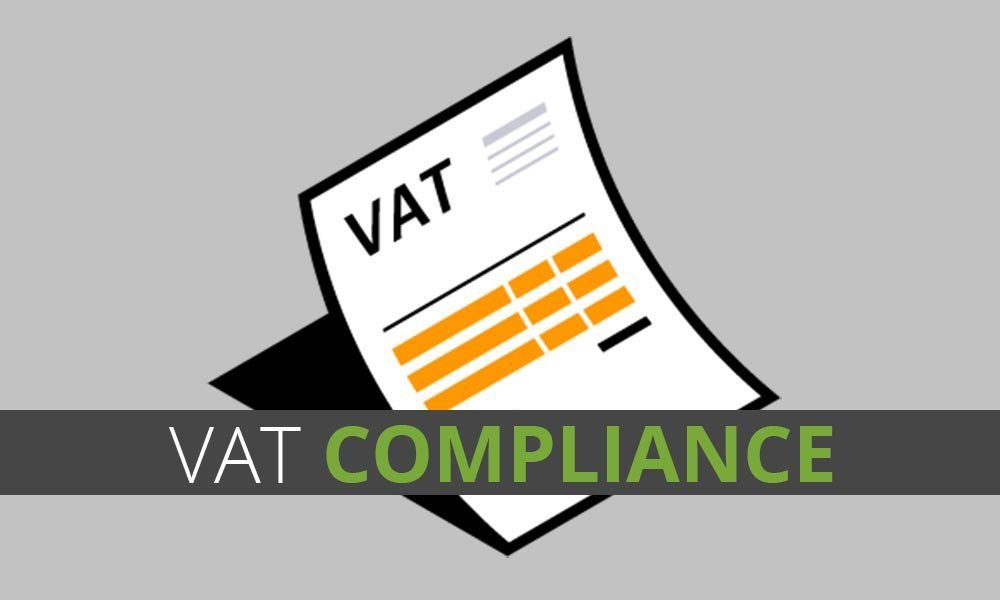
In the UAE, VAT is an indirect tax applied to most goods and services at a rate of VAT of 5%, which is a key part of the general consumption tax system. Businesses are required to pay VAT on their taxable supplies and account for the tax at every stage of the supply chain. Businesses that exceed the mandatory registration threshold of AED 375,000 are required to register for VAT. However, businesses that do not meet this threshold may choose to register for VAT voluntarily if their taxable supplies exceed the voluntary registration threshold of AED 187,500. Companies registered for VAT must ensure that they accurately calculate the amount of VAT on each transaction, ensuring that the correct input and output VAT are reported.
Tulpar Global Taxation specializes in helping businesses navigate the complexities of VAT compliance in the UAE, ensuring that they meet all regulatory requirements seamlessly. We assist businesses in managing their VAT payment and filing duties, providing expert advice on how to claim Tax refund and ensuring that all VAT paid on purchases is properly accounted for. By offering tailored solutions, Tulpar reduces operational risks and helps businesses streamline their tax obligations, from accurate return preparation to advising on the most efficient compliance strategies. Additionally, businesses must also be aware of excise tax regulations when dealing with excise goods in the UAE, as these can further impact their tax responsibilities.
Tulpar provides comprehensive support that enables businesses to focus on their core operations while maintaining full compliance with both VAT and excise tax laws. This proactive approach minimizes the risk of fines and audit complications, ensuring that businesses can continue to operate smoothly, with confidence, in an increasingly complex tax landscape. From VAT work to ensuring that VAT is paid to the government and tax is levied correctly, Tulpar’s expert team works to ensure that businesses remain fully VAT registered and compliant with UAE Federal Tax Authority guidelines. We help businesses understand how VAT is charged, the VAT rate of 5%, and the implications of imports that exceed the mandatory registration threshold. With our help, businesses know about VAT in the UAE and make informed decisions on their VAT registered status and obligations.
VAT Implementation in Business Operations
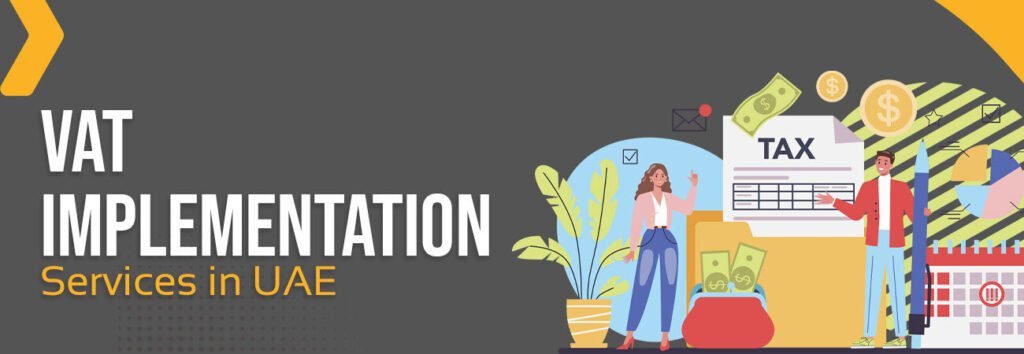
The implementation of VAT in business operations requires careful planning and adaptation to align with regulatory requirements. As the UAE imposes VAT, businesses must understand how the rate of VAT affects their pricing, invoicing, and reporting processes. Managing the tax on both inputs and outputs is critical to ensuring compliance and avoiding penalties. Accurate record-keeping is essential, as businesses must maintain detailed documentation to report the tax that it collects and claim a refund from the government where applicable. VAT also impacts cash flow management, as businesses may need to pay VAT on purchases before receiving refunds from the government on tax collected. This can lead to an increase in the cost of operations, necessitating careful financial planning. To address these challenges, businesses must integrate VAT management into their financial and operational systems effectively.
Staying updated on regulatory changes, exemptions, and decisions by the UAE Cabinet is vital, as these can influence compliance requirements. Training staff and collaborating with tax professionals can help businesses adapt to the government’s move towards its vision of a sustainable and transparent tax system. For businesses involved in cross-border transactions, understanding the impact of VAT rules across different countries is essential. By proactively managing VAT, businesses can optimize their tax position, avoid penalties, and ensure smooth operations in a VAT-compliant environment.
Accounting for Input and Output VAT: VAT accounting involves two main components:
- Input VAT: The tax businesses pay on purchases or expenses. Input – VAT is recoverable if these purchases are used for taxable supplies.
- Output VAT: The tax collected on sales of goods or services, which is remitted to the FTA.
Efficient management of input and output VAT can optimize cash flow and reduce tax liabilities. Businesses must maintain detailed records of all transactions to accurately calculate VAT amounts. Mismanagement of VAT accounts can lead to underpayments, penalties, or even audits by the FTA.
Invoicing and Record-Keeping: Invoices are central to VAT compliance. Every VAT invoice must include:
- Supplier and buyer details, including TRN.
- A clear description of the goods or services.
- VAT amount and applicable rates.
Proper record-keeping is essential for audits and for claiming input VAT. Tulpar Global Taxation offers bookkeeping services to ensure businesses maintain error-free records, reducing compliance risks.
Filing VAT Returns: Returns are filed quarterly or monthly, depending on the FTA’s allocation. Returns must accurately report:
- Output VAT collected.
- Input VAT paid.
- Adjustments for errors or corrections.
Tulpar Global Taxation manages the filing process, ensuring that businesses meet deadlines and submit accurate data, minimizing the likelihood of penalties.
Special Considerations in the UAE

VAT in Free Zones
The UAE has established specific Free Zones that offer special VAT treatments to encourage business growth and foreign investment. Within these zones, goods transactions are typically VAT-exempt, providing a significant advantage for businesses dealing with the import and export of goods. However, services within these Free Zones are generally subject to VAT, which creates a unique compliance challenge for businesses operating in these areas. To maximize the benefits of operating in these zones and avoid potential pitfalls, businesses must carefully navigate the VAT rules that apply to both goods and services.
Staying informed about the specific regulations for each Free Zone is essential to ensure full compliance and avoid costly errors or penalties. As the VAT landscape evolves, businesses must also adapt their practices to maintain adherence to both local and international tax standards.
Real Estate and VAT
- Residential Properties: Exempt from VAT except for the first sale of new properties within three years of completion.
- Commercial Properties: Subject to the standard VAT rate of 5%.
Real estate businesses often require professional assistance to classify transactions correctly and avoid compliance errors. Tulpar Global Taxation provides tailored solutions to address these complexities.
VAT Refunds
Businesses in the UAE can claim VAT refunds on inputs that exceed their outputs, helping to improve cash flow and maintain financial stability. This refund mechanism allows businesses to recover the VAT paid on expenses, offsetting the tax they owe on their sales, which can significantly enhance their liquidity. Additionally, tourists visiting the UAE can benefit from VAT refunds on eligible purchases made during their stay, provided they meet certain criteria before departing the country.
This not only makes the UAE an attractive destination for international shoppers but also boosts tourism by offering an additional incentive for travelers to shop and spend within the country. These refund mechanisms play a crucial role in optimizing cash flow for businesses and enhancing the overall appeal of the UAE as a global hub for both commerce and tourism.
Challenges and Solutions
Common Issues
- Misclassification of supplies leading to errors.
- Inadequate record-keeping, complicating audits.
- Late or incorrect filing of VAT returns, resulting in penalties.
Tulpar Global Taxation offers expert support to help businesses tackle the complexities of VAT compliance. Their services include resolving errors in VAT reporting, preparing accurate VAT returns, and providing strategic guidance on compliance best practices. With a focus on precision and efficiency, their team ensures businesses stay compliant with current VAT regulations, reducing the risk of costly mistakes. Additionally, they equip clients with the necessary tools and advice to handle audits confidently, ensuring businesses are always prepared and protected. Tulpar’s commitment to reliable, tailored solutions helps businesses navigate VAT challenges with ease.
Staying Updated
As VAT laws continue to evolve, businesses must remain vigilant to ensure they comply with the latest regulatory changes. Tulpar Global Taxation assists clients in navigating these shifts, providing expert guidance to ensure seamless adaptation to new rules. By staying ahead of the curve, they help businesses maintain uninterrupted compliance and streamline operations, reducing the risk of penalties and operational disruptions. Their tailored approach ensures that clients are always well-informed and equipped to manage VAT requirements effectively, allowing them to focus on growth while minimizing tax-related concerns.
Why VAT Compliance Matters
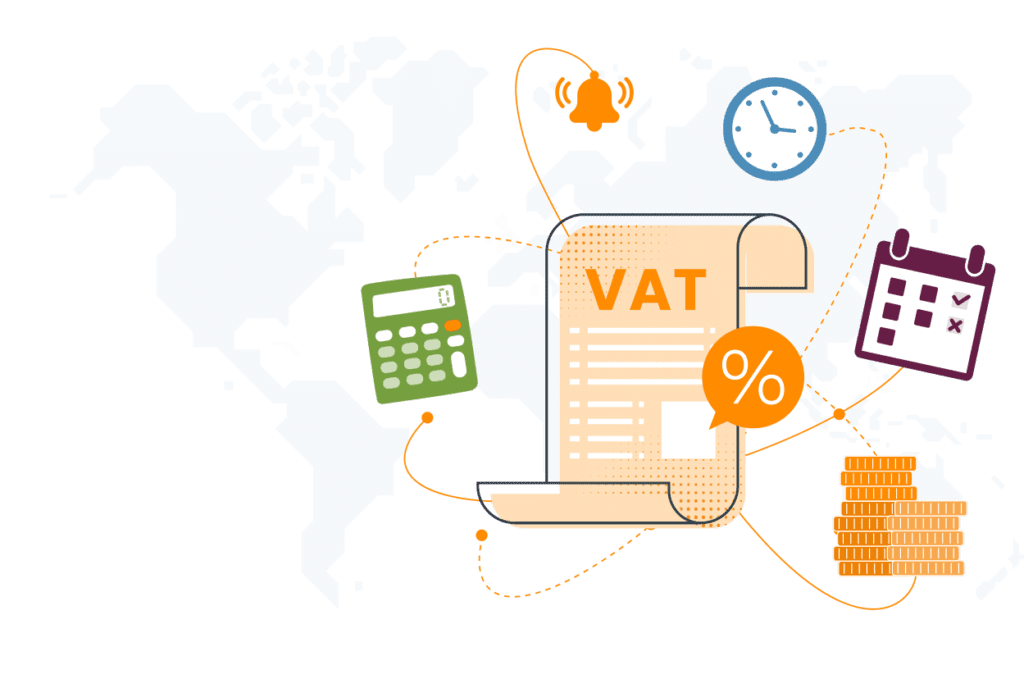
Ensuring VAT compliance is more than just meeting legal obligations; it is a cornerstone of a business’s credibility and operational success. In the competitive market of the UAE, managing VAT effectively highlights a company’s professionalism and adherence to regulatory standards. VAT compliance reflects a business’s commitment to transparency and accountability, fostering trust among stakeholders, including customers, partners, and regulators. It also minimizes risks such as audits, penalties, or reputational damage resulting from errors or non-compliance. Consumers bear the VAT cost, as it is paid to the government by businesses on behalf of the end-users. Compliance involves reporting the amount of VAT accurately and ensuring that tax on behalf of transactions aligns with the prescribed conditions and requirements for VAT.
Businesses can also benefit from VAT refunds by meeting the requirements for VAT refunds set out under UAE law. Proper VAT management, including VAT record-keeping, invoicing, and tax reporting, enhances operational efficiency and ensures that the VAT rate applies to goods and services correctly. Additionally, VAT in the form of input VAT allows businesses to recover the input tax they’ve paid on business-related purchases in the UAE, helping to reduce their total value, including VAT liabilities, and improve cash flow. This strategic advantage enhances profitability and supports informed decision-making based on accurate financial data. For global and regional investors, collaborating with VAT-compliant companies ensures legal and ethical integrity, making such businesses more attractive partners in the dynamic UAE market.
Tulpar Global Taxation simplifies navigating VAT regulations for businesses introduced in the United Arab Emirates. From registration and return filing to audits and strategic planning, Tulpar provides end-to-end support, ensuring that businesses submit a vat return and report the amount of VAT correctly while staying compliant with the UAE Federal Tax Authority guidelines. By leveraging Tulpar’s expertise, businesses can focus on innovation and growth while reducing administrative burdens. This partnership ensures operational efficiency, fosters trust, and secures long-term success in compliance with UAE VAT laws.
Conclusion
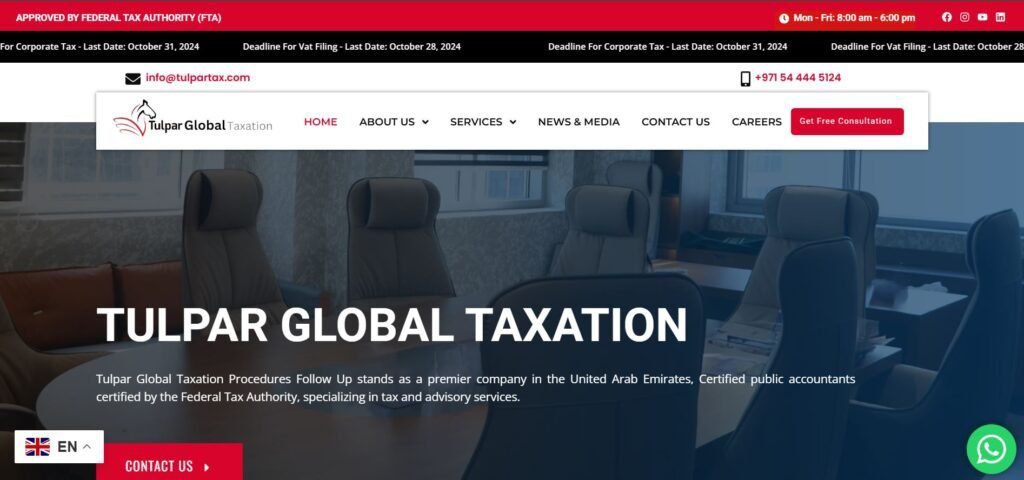
Value Added Tax (VAT) plays a vital and transformative role in the UAE’s economy, serving as a general consumption tax that significantly contributes to the diversification of government revenue. Introduced as part of the UAE government’s strategy for economic sustainability, VAT supports the funding of public services, infrastructure projects, and social programs. This modern and transparent taxation system has become integral to the financial landscape, benefiting both the government and businesses by providing a stable and predictable revenue stream.
For businesses, VAT compliance is essential to avoid costly mistakes and penalties. It involves a deep understanding of VAT rules, timely filing of returns, accurate application of VAT charges on invoices, and maintaining detailed records for audits. Businesses must also calculate their net tax accurately by subtracting input VAT from output VAT. Proper management ensures smooth operations while aligning with corporate tax regulations in the UAE. Since VAT was introduced, businesses have faced complexities in adhering to its requirements, highlighting the need for proactive management of VAT processes. By ensuring compliance with the UAE’s general consumption tax framework, companies not only avoid penalties but also strengthen their operational integrity and reputation.
Tulpar Global Taxation offers comprehensive, end-to-end VAT solutions, empowering businesses to efficiently manage their VAT obligations and ensure seamless compliance with UAE tax regulations. With expert advice and tailored solutions, Tulpar helps businesses of all sizes—whether small startups or large multinational enterprises—navigate the intricacies of VAT and avoid potential risks associated with non-compliance. Their team of professionals provides the necessary guidance to optimize Value added tax registration, management, streamline tax reporting, and ensure businesses remain competitive and compliant in the UAE’s dynamic and fast-changing market. By partnering with Tulpar, businesses can confidently handle VAT-related responsibilities, minimize operational disruptions, and focus on their growth while ensuring full compliance with local tax laws.
Value Added Tax (VAT) in the UAE is an indirect tax levied on the consumption of goods and services. It is charged at each stage of the supply chain and ultimately borne by the final consumer. VAT was introduced to diversify government revenue while maintaining a business-friendly environment.
The standard VAT rate in the UAE is 5%. This rate applies to most taxable supplies of goods and services. Certain supplies may be zero-rated or exempt depending on their nature and regulatory conditions.
Businesses must register for VAT if their taxable turnover exceeds the mandatory registration threshold. Some businesses may also opt for voluntary registration if they meet eligibility criteria. Correct registration ensures compliance and avoids penalties.
Zero-rated supplies include exports of goods and services outside the UAE, certain healthcare and education services, and international transportation. Although VAT is charged at 0%, businesses can still recover input VAT. Proper documentation is required to apply zero-rating.
Exempt supplies include certain financial services, residential property leasing, and local passenger transport. Businesses making exempt supplies generally cannot recover input VAT related to those activities. Correct classification is essential to avoid compliance issues.
Most VAT-registered businesses file VAT returns quarterly, while some are required to file monthly. VAT returns must be submitted by the FTA deadline. Late or incorrect filings can result in penalties.
Yes, businesses can recover input VAT incurred on eligible business expenses. Some expenses may be blocked or partially recoverable. Proper invoices and accurate records are required for VAT recovery.
Businesses must retain VAT invoices, records of supplies, and accounting documents for the prescribed retention period. Poor documentation is a common reason for penalties during VAT audits. Maintaining organized records is critical for compliance.
Common mistakes include incorrect VAT classification, missing deadlines, and errors in VAT returns. Misunderstanding reverse charge and zero-rating rules is also frequent. Regular reviews help prevent these issues.
VAT compliance requires accurate registration, timely filing, proper documentation, and regular reviews. Working with experienced professionals like Tulpar Global Taxation helps businesses remain compliant and reduce VAT risks.
